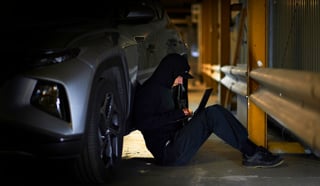What should the speed limiters be set to?
Ian Leonard Simply make them mandatory at 70mph with adjustability down to 56mph.
Tim Bright Maximum to 70mph – despite recent announcements that motorway limits could rise to 80mph.
Although there is an argument to set at, say, 60mph as a lot of van drivers seem unaware that on single carriageways in a 3.5t GVW vehicle they are not allowed to exceed 50mph.
Andrew Smith Speed limiters need to match the needs of a company and limits need to be bespoke to their individual drivers and routes.
However, if you have a fleet which mainly drives on A or B roads we’d usually recommend limiting speeds to 56-60mph. If your fleet mainly operates on the motorway network, we’d recommend a limit of 70mph.
Paul Boulds Our partner vans are rev limited to 3200rpm which limits the top end speed to about 73-75mph.
How could you overcome resistance from drivers?
Ian Leonard Simply point out the fuel savings, the reduced stress on themselves and at the end of the day drivers must understand and appreciate that commercial vehicles belong to the company and not them.
They contribute no tax or expenditure towards these vehicles and any company needs to do what it can to reduce both cost and risk.
Tim Bright An incentive scheme that would reward drivers with the lowest fuel consumption and the least number of accidents could be a solution.
Andrew Smith Reinforcing the bigger picture is paramount. Protecting a driver while they are using a vehicle on company business is vital to any company’s health and safety strategy, and a speed limiter goes some way to helping achieve this.
Paul Boulds A series of presentations were given to our drivers to overcome their potential resistance to the system; they soon became aware of the unnecessary costs relating to accidents and poor fuel consumption figures, as well as premature wear and tear on the vehicles.





















Login to comment
Comments
No comments have been made yet.